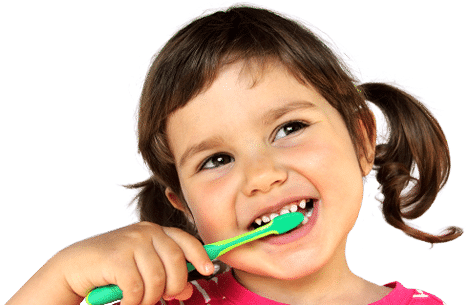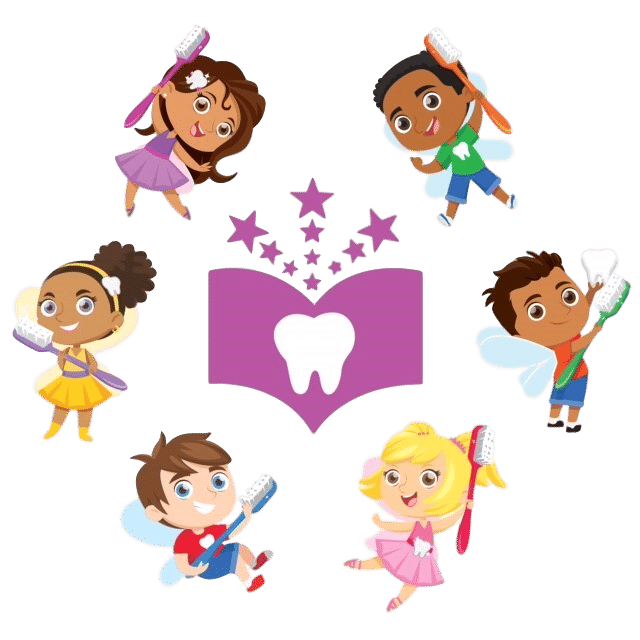Patient Education

Baby Tooth Timeline
What to Expect
Watching a child teethe for the first time is a difficult experience for most parents. They might simultaneously await those first precious teeth and dread the weeks of sleepless nights. After teeth come in, it is only natural for parents to worry about teeth that fall out early due to injury, or molars that take longer than expected to show. For all you anxious parents, a more in-depth understanding of the baby tooth timeline might help to calm your fears.
Watching a child teethe for the first time is a difficult experience for most parents. They might simultaneously await those first precious teeth and dread the weeks of sleepless nights. After teeth come in, it is only natural for parents to worry about teeth that fall out early due to injury, or molars that take longer than expected to show. For all you anxious parents, a more in-depth understanding of the baby tooth timeline might help to calm your fears.
First Things First
The first thing to understand about teething is that while there are “norms,” most children’s teeth erupt according to their own schedule. If your child’s teeth break through differently than you think they should, there is no cause for alarm. But, if you have questions about teething, make an appointment for your child with the Children’s Dental Center. Our pediatric dentists in Indianapolis and Fishers are more than happy to examine your child’s teeth. We can also talk with you about what to expect, and address any worries you may have.
When to Expect Teething
Most children start getting their first teeth when they are about six months old. The first teeth to arrive are usually the front bottom central incisors, followed by the top central incisors. Those teeth are typically followed by the central lateral incisors, which are the teeth on each side of the center set. As the teeth continue to grow in, they'll usually come in pairs, preserving the symmetry of your child's bite. By the time most kids are between 2 ½ and 3 years old, they have received all 20 of their primary baby teeth, ten teeth on top and ten on the bottom. Girls typically teethe before boys. As a general rule of thumb, your child will receive about 4 teeth every six months or so for the first three years of life.

Let Carrie & Larry, the Tooth Tickling Fairies help show you how to care for your child's teeth at home!
Schedule the Tickling Tooth Fairies reading at your school.
Read Our Testimonials
When to Expect Baby Tooth Loss
Baby teeth can start falling out when your child is between 6 and 7 years old, and usually follow the “first in, first out” pattern. That means that your child’s central and lateral incisors are the first to fall out, followed by cuspids, first molars, and second molars. Cuspids, also called canines, fall out when your child is between 10 and 12 years old, and kids lose molars anywhere between the ages of 9 and 12.
Teeth Lost Early
Sometimes, kids lose teeth early due to dental decay, oral injury, or if they are too eager to meet the tooth fairy. Unfortunately, because baby teeth hold the space open for permanent teeth to arrive later, losing a tooth early could cause orthodontic problems in the future. To ward off these kinds of problems, Dr. Edwards might recommend a space maintainer to hold the place open for future teeth. Space maintainers are available in several different shapes, sizes, and types. This allows your Fishers pediatric dentists to personalize the treatment for your child.
If your child has lost a tooth due to an oral injury, the clinicians at The Children’s Dental Center will treat the injury. They can also extract the damaged teeth if necessary, and make sure that your little one can eat, brush, and floss comfortably.
Make an Appointment for Your Child Today!
The American Academy of Pediatric Dentistry recommends bringing your child in for their first dental appointment as soon as they break their first tooth or by the time your child is one, whichever occurs first. Afterwards, children should visit at normal intervals just like you would schedule your own dental checkups. Make an appointment with your pediatric dentist in Indianapolis and Fishers to have your child’s pearly whites inspected.

Meet Dr. Edwards
MICHELLE H. EDWARDS, DDS, MSD
Indianapolis Pediatric Dentist Dr. Edwards helps families set the stage for a life-long commitment to oral health in a friendly and approachable manner. She provides a pleasant visit to the dental office, promoting trust and confidence in young patients that lasts a lifetime.




